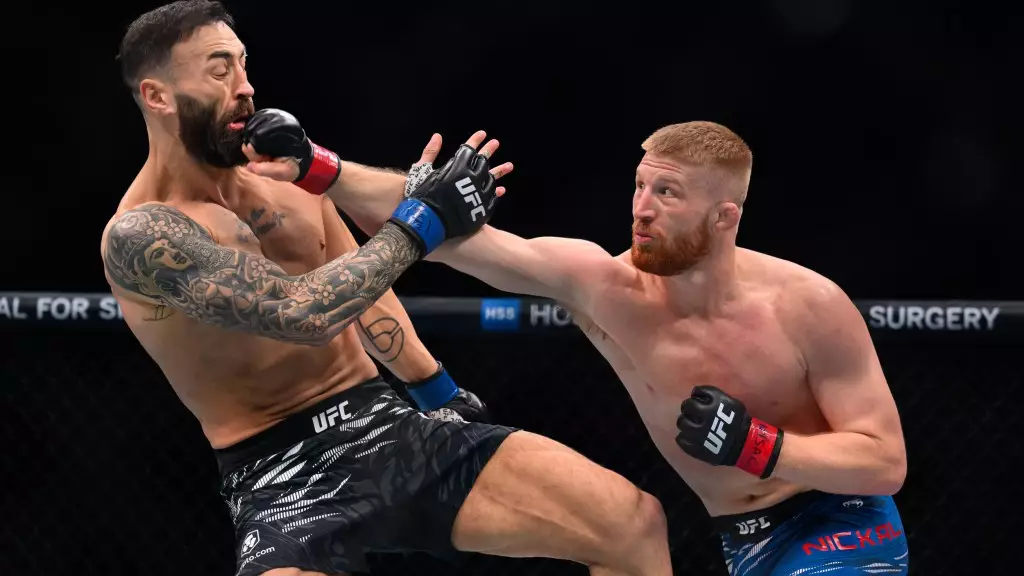Bo Nickal has made a name for himself in the UFC by maintaining an impressive unblemished record of 7-0 in mixed martial arts (MMA) and 4-0 in the UFC. His latest outing at UFC 309 showcased his ability to remain dominant against seasoned competitor Paul Craig. However, despite the win, Dana White’s post-fight comments suggest that Nickal may need to recalibrate his trajectory within the sport. Delivering a performance that was competent yet lacked the expected aggression, Nickal dominated the judges’ scorecards without executing a single takedown—a surprising choice for a fighter with his wrestling pedigree.
The Dynamics of Performance and Expectations
The fight at Madison Square Garden was less a display of Nickal’s capabilities and more a testimony to the challenges that lay ahead. White’s remarks underline a critical point in Nickal’s early career: the distinction between potential and performance. While Nickal’s win can be classified as a dominant one, the lack of engagement in takedown attempts raises questions about his strategy in the cage. There are expectations not only from fans but from UFC executives about what constitutes a winning performance, particularly for fighters who have made a name for themselves through their wrestling backgrounds.
Nickal has expressed a desire to fast-track his way to a championship shot, famously claiming he is merely five fights away from contention. This level of ambition is commendable, but reality often presents a different narrative. Chants of “overrated” from the audience during UFC 309 act as a wake-up call, signaling that some spectators are yet to be convinced of his prowess. The mixed reactions from the crowd highlight an important dynamic in professional fighting: the burden of expectation can weigh heavily on fighters, especially those who have shown flashes of promise but need more refinement in their skill set.
The performance at UFC 309 prompted Nickal to self-analyze, labeling his fight as “picture-perfect.” However, self-awareness is crucial in a sport where critics are zealously observant. While logging experience in three-round fights is beneficial, it’s clear that Nickal must adapt and evolve if he genuinely harbors championship aspirations. White’s acknowledgment that “Bo still has work to do” stems from a place of mentorship rather than mere critique. It suggests that while Nickal may currently be successful, the UFC is an unforgiving arena where performance and results matter more than pedigree alone.
Bo Nickal finds himself at a pivotal juncture in his burgeoning career; balancing ambition with the need for development in his fighting style will be his greatest challenge. As he faces increasing scrutiny, the path toward a title shot may not be as straightforward as he initially envisioned. What’s certain is that the expectations and challenges that come with fame in the UFC require a measured approach to growth.

